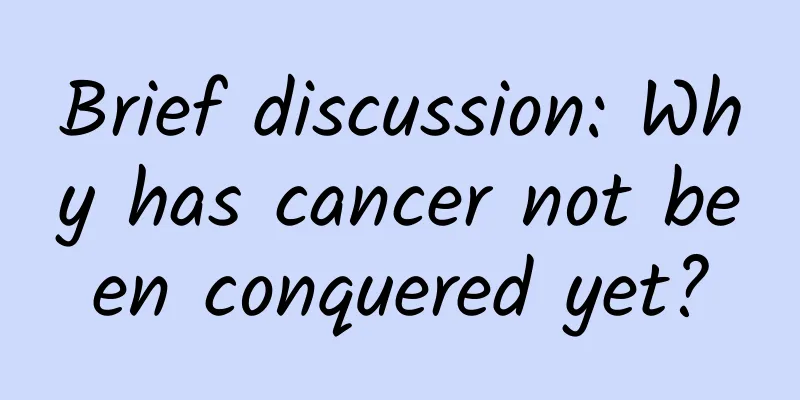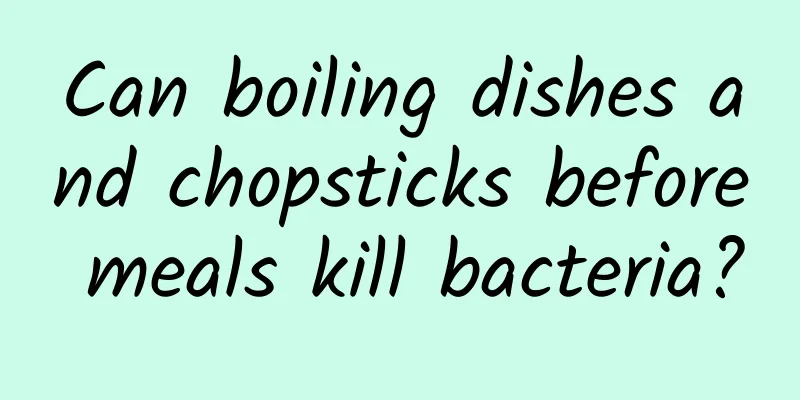Brief discussion: Why has cancer not been conquered yet?

|
Cancer is a major problem that modern medicine cannot overcome. Although medical technology is constantly improving, cancer is still a huge threat to human health and life. This article will explore why cancer has not been overcome so far from the perspective of the complexity of cancer, the limitations of treatment methods, and individual differences. 1. The complexity of cancer Diversity of cancer cells Cancer is caused by mutations in a single cell, but each cancer cell has different genetic mutations and epigenetic changes. These changes make each cancer case unique and require treatment tailored to each patient. Therefore, finding a single treatment that works for all cancer cases is an extremely difficult task. Cancer cells are highly adaptable and can survive and proliferate in a variety of environments. During chemotherapy, radiotherapy and other treatments, cancer cells often develop resistance to treatment, making the treatment ineffective. In addition, cancer cells can adapt to treatment by changing their own metabolism and energy production, thereby escaping the attack of the immune system. Cancer Microenvironment The occurrence and development of cancer is not only related to the cancer cells themselves, but also closely related to the microenvironment in which they are located. The microenvironment includes immune cells, stromal cells, extracellular matrix, and various signaling molecules, which together form a complex network that affects the growth, migration, and spread of cancer cells. Insufficient understanding of the microenvironment limits our understanding and treatment of cancer. 2. Limitations of Treatment Methods Limitations of Chemotherapy Chemotherapy is one of the common methods for treating cancer, but its side effects and tolerance limit its application. Chemotherapy drugs often affect the growth and metabolism of normal cells, leading to serious side effects such as nausea, vomiting, and hair loss. In addition, cancer cells often develop resistance to chemotherapy drugs, which reduces the effectiveness of chemotherapy. Radiotherapy is a localized treatment method that kills cancer cells through high-energy rays. However, radiotherapy can also cause damage to normal cells, such as skin lesions, oral ulcers, etc. In addition, radiotherapy may also lead to late complications, such as heart disease, lung cancer, etc. Limitations of immunotherapy Immunotherapy is a new treatment method developed in recent years, which aims to attack cancer cells by activating the patient's own immune system. However, immunotherapy also has certain limitations. First, the effect of immunotherapy on some types of cancer is not obvious; second, immunotherapy may cause serious immune-related adverse reactions, such as autoimmune diseases; finally, the high cost of immunotherapy limits its widespread clinical application. 3. Individual Differences Each person's genome is unique, which makes different people's susceptibility to cancer and response to treatment different. Genetic differences may cause some people to be genetically more likely to develop certain types of cancer and respond less well to certain treatments. Understanding individual genetic differences can help doctors choose more appropriate treatment options for their patients. Lifestyle and environmental factors Lifestyle and environmental factors also have an important impact on the occurrence and development of cancer. For example, lifestyle factors such as smoking, drinking, and unhealthy eating habits can increase the risk of cancer. In addition, exposure to environmental factors such as carcinogens and viruses may also lead to the occurrence of cancer. Differences in lifestyle and environmental factors make cancer prevention and treatment more complicated. There are many reasons why cancer has not been conquered. The complexity of cancer, the limitations of treatment methods, and individual differences have brought huge challenges to cancer treatment. Although medical technology is constantly improving, conquering the difficult problem of cancer still requires multi-faceted efforts and long-term exploration. Zhao Yiqun, Department of Oncology, Handan Mingren Hospital |
<<: AFT LIPO-SACHETS: Innovators in Vitamin Supplements
>>: Urinary stones: scientific care and prevention strategies
Recommend
Women have lower abdominal pain when urinating
Lower abdominal pain when urinating is a very ser...
What to do if you have no sexual interest in your husband
Sex is a very necessary thing for us. Through sex...
14 years old, I got my period again after ten days
Menstruation is a woman's normal menstrual cy...
What are the symptoms of a displaced uterus?
The most important organ for a woman to conceive ...
Symptoms of low progesterone, early detection and early treatment
Progesterone, also known as progesterone, is the ...
What is the main route of transmission of AIDS?
"Doctor, do I have AIDS? "Don't be ...
How many days after a woman's period is safe?
In fact, in daily life, we have also seen that ma...
Who helped Lin Xia hide her identity in Penglai? What is Lin Xia's true identity?
Before the winter and summer holidays every year,...
What are the consequences of a retroverted uterus?
An anterior uterus will not have any impact on wo...
After symptoms appear, the mortality rate is about 100%! Be careful of 5 common situations
After reading the above popular science, you may ...
Can I eat chocolate during menstruation? Why?
Female friends need to pay close attention to the...
Formaldehyde causes nose bleeding in pregnant women
Pregnant women should not only pay attention to h...
Is dandruff just caused by insufficient cleaning?
This article was reviewed by: Xiaobo Zhou, Doctor...
What are the signs that a pregnant woman is about to give birth?
In the later stages of pregnancy, the fetus grows...
How to eliminate the strong odor in the vagina?
For a woman, having a breast in her lower body is...









